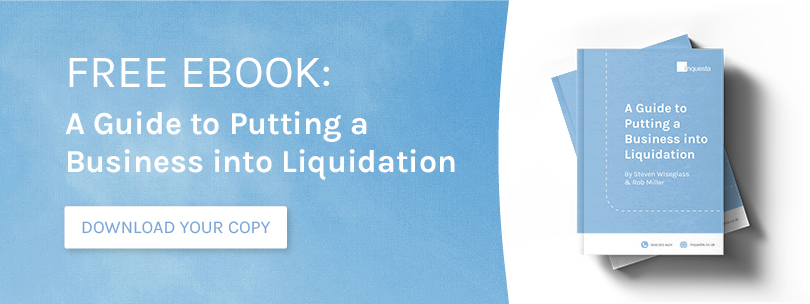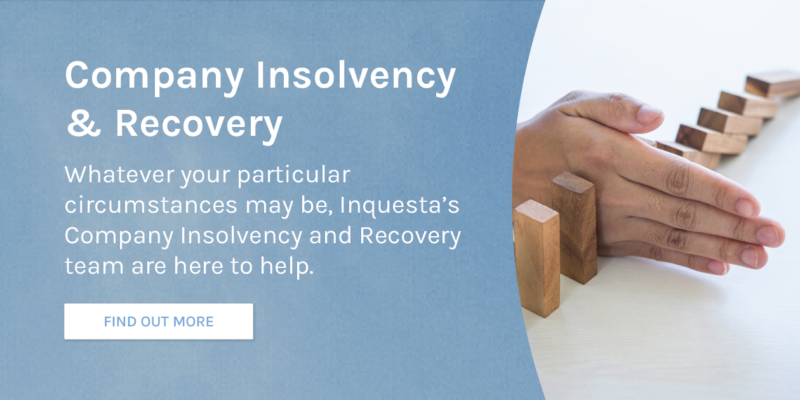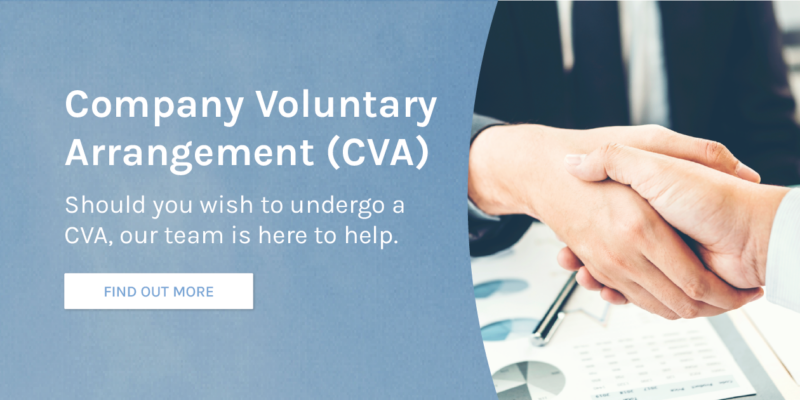If you are a business’ shareholder, you may have concerns and be wondering ‘are shareholders liable for limited company debt should the worst happen?’ The good news is that in the vast majority of cases, you would not be expected to cover any of these debts thanks to the concept of ‘limited liability’.
The only money you stand to lose in these scenarios is the total value of your shares. However, there are some circumstances that can see shareholders liable for limited company debt beyond their initial investment.
What is Limited Liability in Business?
One of the main benefits of setting up a limited company is the protection it offers should the firm be unable to settle its debts. Because the company is a separate legal entity from owners and shareholders, responsibility for these commitments does not usually pass onto these individuals. This concept is known as limited liability.
That being said, shareholders are typically liable only for the ‘nominal’ value of their shares. In practice, this essentially means that they lose out on the amount of money they initially invested in the firm – something that they would likely have been aware of at the time.
How Much are Shareholders Liable for?
As mentioned above, shareholders are liable for a ‘nominal’ value of limited company debt, which is typically set at £1 per share. For example, if the business has just one shareholder and issues only one share with a nominal value of £1, the liability of the shareholder will be just £1.
Now imagine the company has 10 shareholders and it issues 100 shares with a nominal value of £1 each. If each shareholder takes 10 shares, they would each be liable for £10 (100x£1÷10).
In the vast majority of cases, a shareholder will pay for their shares immediately. This means they would incur no further liability should the business suddenly be unable to cover its debts. However, there are circumstances where shares are taken on a part-paid or unpaid basis. In these scenarios, the shareholders will be expected to pay the outstanding nominal value of their shares when the company ‘calls up’ the unpaid share capital.
When are Shareholders Personally Liable for Limited Company Debt Beyond the Nominal Value?
Shareholders typically only owe a nominal value of their shares. However, shareholders can be personally liable beyond this if they make a personal guarantee for a company loan. This allows creditors to take action directly against the shareholder should the firm be unable to settle the debt itself.
When it comes to limited companies, it is extremely common for the directors and shareholders of the firm to be one and the same. In cases where an individual acts as both a shareholder and director/officer of the business, there are several other scenarios in which they could be liable for limited company debt. These include:
- If they dispose of any company assets for below market value, or for free, during or leading up to insolvency
- When the individual continues to trade in the interest of shareholders, despite knowing the business is insolvent
- The raising of funds to pay off the company’s creditors through fraudulent means

What are the Consequences if Shareholders are Liable for Limited Company Debts?
If shareholders are found to be liable for a company’s debts, the consequences can be quite severe. They can range from legal action to bankruptcy. If the severity of the situation calls for it, if the shareholder also acts as a director, they could also be disqualified from holding a similar role for up to 15 years, or even face prison time if they are deemed to have acted unlawfully.
Can You Conduct a Business Debt Write Off
Should a business be struggling to pay off its debts, there are a number of ways in which the money owed can be written off. The first option is by using a Company Voluntary Arrangement (CVA). This is a legally-binding contract between a company and its creditors to settle the debts (either in part or in full) over a set period of time. Assuming that all the required payments have been made before the deadline, any remaining debt will be written off. In cases where the company is unable to keep up with its responsibilities, the best solution may be to liquidate the business via a Creditors’ Voluntary Liquidation (CVL). If approved, the firm would be closed (wound up) and its assets liquidated to settle the debts and pay for the liquidation process itself. Any remaining unsecured debt will then be written off. Get Expert Guidance from Inquesta
If you are ever unsure about your personal responsibility towards company debt, either as a shareholder or director, you can rely on Inquesta to help. We have amassed decades of experience in helping clients deal with their debt and settle their case in the most appropriate way possible.
Our expert team has supported clients from all areas of industry to deal with a wide variety of issues. This leaves us perfectly placed to assist with your queries, whatever your circumstances may be. We are the experts when it comes to corporate recovery, forensic accounting, commercial finance and much more besides.
We are committed to providing our clients with the best level of service possible, and can effortlessly alter our processes to cope with your unique circumstances. This gives you an extremely personal service that you can rely on – something that can be incredibly important during this stressful time.
For more information about how Inquesta can help you, contact a member of our team today or request a free, no obligation, consultation.
Get Expert Guidance from Inquesta
If you are ever unsure about your personal responsibility towards company debt, either as a shareholder or director, you can rely on Inquesta to help. We have amassed decades of experience in helping clients deal with their debt and settle their case in the most appropriate way possible.
Our expert team has supported clients from all areas of industry to deal with a wide variety of issues. This leaves us perfectly placed to assist with your queries, whatever your circumstances may be. We are the experts when it comes to corporate recovery, forensic accounting, commercial finance and much more besides.
We are committed to providing our clients with the best level of service possible, and can effortlessly alter our processes to cope with your unique circumstances. This gives you an extremely personal service that you can rely on — something that can be incredibly important during this stressful time.
For more information about how Inquesta can help you, contact a member of our team today or request a free, no obligation, consultation.




